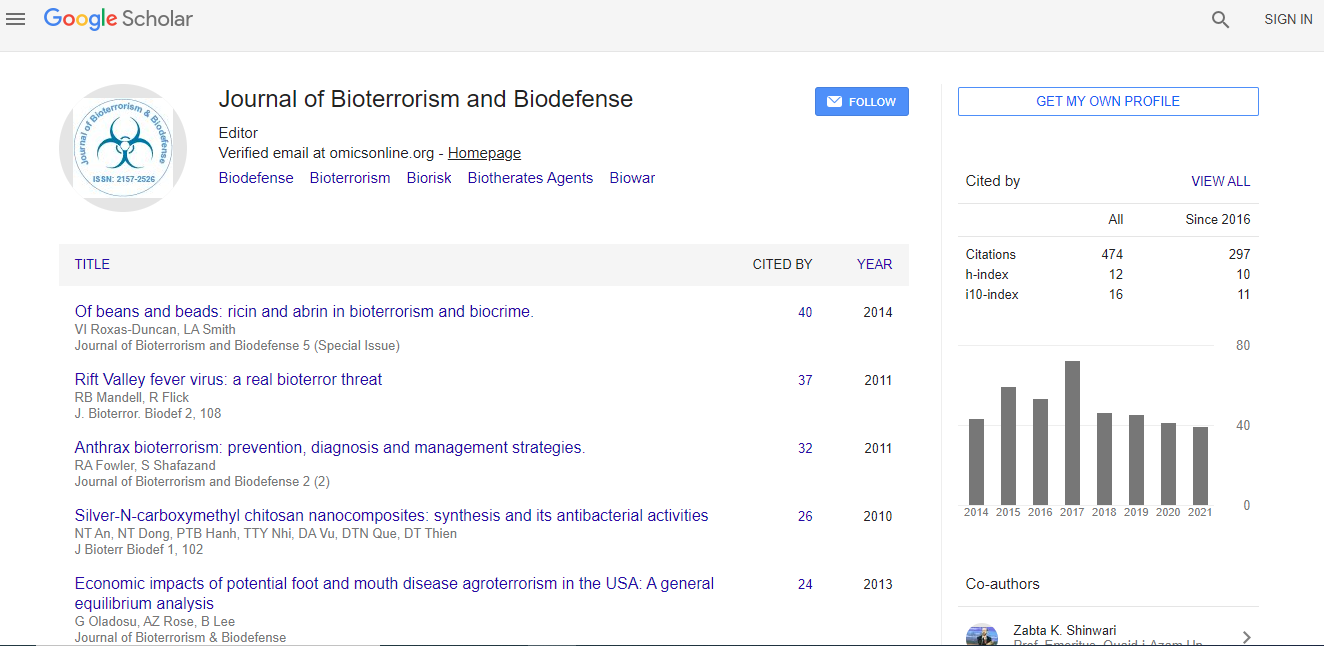Research Article
Psychological Process and Pathways to Radicalization
Kamaldeep Bhui1,2*, Sokratis Dinos1 and Edgar Jones2,3
1Wolfson Institute of Preventive Medicine, Queen Mary, University of London, UK
2Careif, Centre for Applied Research & Evaluation-International Foundation, UK
3King’s College London, King’s Centre for Military Health Research, UK
- *Corresponding Author:
- Kamaldeep Bhui
Centre for Psychiatry
Old Anatomy Building Charterhouse Square
London EC1M 6BQ, UK
Tel: 020-78822012
Fax: 02078825728
E-mail: k.s.bhui@qmul.ac.uk
Received Date: February 16, 2012; Accepted Date: May 23, 2012; Published Date: May 25, 2012
Citation: Bhui K, Dinos S, Jones E (2012) Psychological Process and Pathways to Radicalization. J Bioterr Biodef S5:003. doi:10.4172/2157-2526.S5-003
Copyright: © 2012 Bhui K, et al. This is an open-access article distributed under the terms of the Creative Commons Attribution License, which permits unrestricted use, distribution, and reproduction in any medium, provided the original author and source are credited.
Abstract
The recent emphasis on ‘home-grown’ terrorism has resulted in a vigorous discourse on radicalization as a process that might explain how seemingly ordinary people become terrorists. This paper explores the psychological influences, group and individual identity in young people during maturation, when transitions of identity may make them vulnerable to recruitment to violent radicalization. This paper specifically focuses on the recent phenomena of home grown terrorism in Western democracies. This requires investigation without assumptions of similarity with other global and historical acts of terrorism. Studies of terrorism have focused on those identified as engaged with terrorist organizations or convicted of terrorist crimes, with little attention given to populations that are vulnerable to recruitment to terrorist action. Therefore, this paper focuses on home grown terrorism and the psychological processes and pathways to radicalization as a pre-cursor of terrorist acts.

 Spanish
Spanish  Chinese
Chinese  Russian
Russian  German
German  French
French  Japanese
Japanese  Portuguese
Portuguese  Hindi
Hindi 